When it comes to resume writing that successfully advertises those transferrable skills, a career change may be extremely challenging, especially if you lack hands-on industry experience.
Here are 4 tips to get you started on creating a successful resume for a career change:
1. Utilize The Resume To Rebrand Yourself
Your resume should be tailored to the position you want to get, not the one you have now. The same is true for your target audience; you want to make sure you’re speaking to the demands and interests of your potential employer, not simply your current industry.
A well-written Career Summary Statement and a Skills/Core Competencies section should be the first parts on your resume. In a situation like this, when you may lack relevant experience, you should begin with your strongest branding information, which tells your audience what you’re qualified to perform and what you can do.
You may find that condensing older or less relevant material and focusing more on your skill sets makes sense. Create a powerful opening summary that emphasizes factors that would be useful in your goal field and discusses your transferrable experience.
2. Focus On Relevance Over Detail
Instead than describing every responsibility and task, focus on those that bring immediate value or demonstrate transferrable skill sets when writing job descriptions. Keep an eye out for industry-specific terminology that may be confusing to hiring managers in other industries – it may be best to leave it out.
You may choose to condense previous roles or experience that is no longer relevant, as previously noted. In many situations, a short, high-level resume with relevant information is more effective than a lengthy resume with accomplishments, tasks, and responsibilities that are exclusive to one industry.
While it’s best to avoid big gaps in your resume, you should preferably mention positions that indicate skills that are directly transferable to the new type of role or profession you’re seeking. Employers want to know that hiring you will be a straightforward process, and the more relevant skills you can exhibit, the more confident they will be.
3. Highlight Transferrable Or Relevant Experience
Any outside experience or training that may be relevant to your desired sector should be emphasized. Education, internships, volunteer/consulting work, as well as any online training or professional networking opportunities, can all be included.
If you put the information towards the end of the resume, be sure it doesn’t get lost. Instead, highlight these features towards the top of the page, in the Education, Summary, or Skills sections.
4. Created A Targeted Cover Letter
A cover letter is an excellent tool for expanding beyond the information that’s in the resume A cover letter is a wonderful tool for going beyond what’s on your resume and expressing the specifics of your transition. Avoid rehashing what’s already on your Resume and instead focus on delivering a great narrative about why you’re seeking for a change and what drew you to the industry, company, or role in the first place. It’s also crucial to fit in with the company’s culture, so don’t be hesitant to highlight what motivates you about the company, it’s vision, or its work.
Positioning oneself competitively against candidates with more traditional backgrounds in that area is the problem for any career change. You’ll also want to showcase your transferable skills and explain why you believe you’re a good fit for the role.
Do you need assistance with rebranding and creating a compelling career-change resume? To get started, get in touch with a professional resume maker today!




Leave A Comment